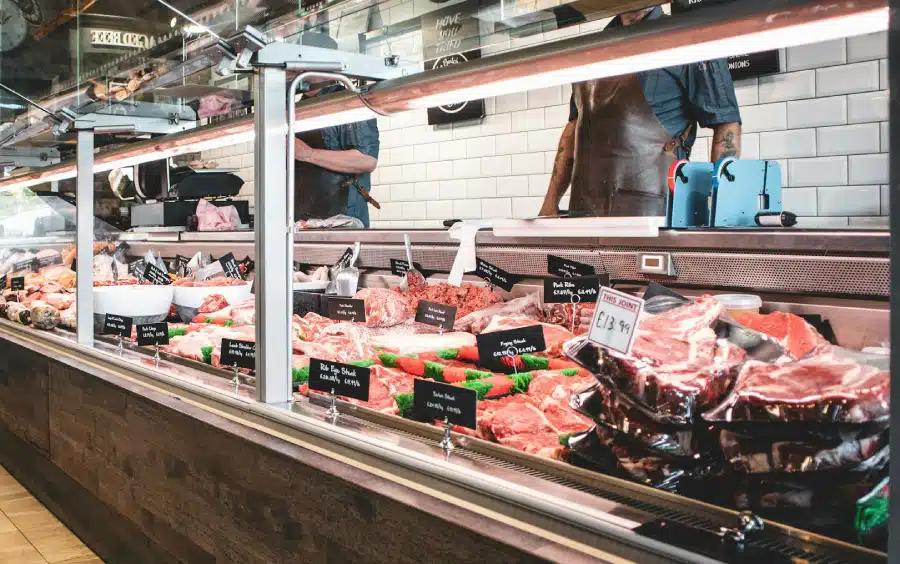China e Brasil lançam programa piloto de rastreabilidade da carne bovina

A China e o Brasil iniciaram um programa piloto para rastrear o movimento transfronteiriço de carne bovina, com o objetivo de aumentar a transparência e a sustentabilidade de seu comércio de carne bovina. Essa iniciativa segue as recentes consultas bilaterais entre a GS1 China e as autoridades brasileiras, conforme relatado pelo China Media Group (CMG).
O programa se concentra no estabelecimento de uma plataforma de rastreabilidade de carne bovina unificada globalmente para garantir a transparência da cadeia de suprimentos de carne bovina e aumentar a visibilidade de toda a cadeia. As principais partes interessadas nessas consultas incluíram especialistas em comércio de carne bovina, rastreabilidade de segurança alimentar e proteção ambiental de ambos os países.
Não perca essa chance! Assine nosso boletim informativo para receber o conteúdo mais recente diretamente em sua caixa de entrada ou registro GRATUITAMENTE para obter acesso total.
Os dois países concordaram que padrões globais unificados são cruciais para a rastreabilidade eficaz de alimentos entre fronteiras. Esses padrões desempenham um papel fundamental no combate à carne bovina falsificada, na garantia da segurança alimentar doméstica e no avanço da supervisão inteligente. As consultas representam um avanço significativo no comércio de carne bovina entre a China e o Brasil, abrindo caminho para uma cooperação mais profunda.
Zhou Zhiwei, especialista em estudos latino-americanos da Academia Chinesa de Ciências Sociais, enfatizou que, como o maior comprador de carne bovina brasileira, a China tem o direito de exigir que as exportações brasileiras sigam padrões específicos de saúde, segurança e qualidade. O esquema de rastreabilidade visa a atender a essas exigências. Além disso, espera-se que o sistema apoie os esforços do Brasil na promoção da agricultura verde.
Em março, a China retomou as importações de carne bovina brasileira após uma breve suspensão devido a um caso da doença da vaca louca. A China, como o maior importador de carne bovina do mundo, obtém uma parte significativa de suas importações do Brasil, Argentina e Uruguai. Em 2023, a China importou 2,74 milhões de toneladas de carne bovina, sendo mais de 40% provenientes do Brasil, de acordo com dados da alfândega chinesa.
A produção de carne bovina é uma preocupação ambiental significativa, especialmente no Brasil, onde está associada ao desmatamento e às altas emissões de gases de efeito estufa. O programa piloto tem como objetivo abordar essas questões de sustentabilidade, garantindo cadeias de suprimento de carne bovina transparentes e responsáveis. Embora as empresas chinesas tenham tradicionalmente priorizado o custo em detrimento da sustentabilidade, há um interesse crescente em cadeias de suprimentos mais ecológicas, impulsionado por diretrizes políticas e pressões de investidores.
No entanto, os especialistas alertam que os custos mais altos e os desafios logísticos podem limitar a demanda por carne bovina produzida de forma sustentável. Apesar desses desafios, a iniciativa de rastreabilidade marca um passo significativo em direção a práticas mais sustentáveis de comércio de carne bovina entre a China e o Brasil.


Respostas